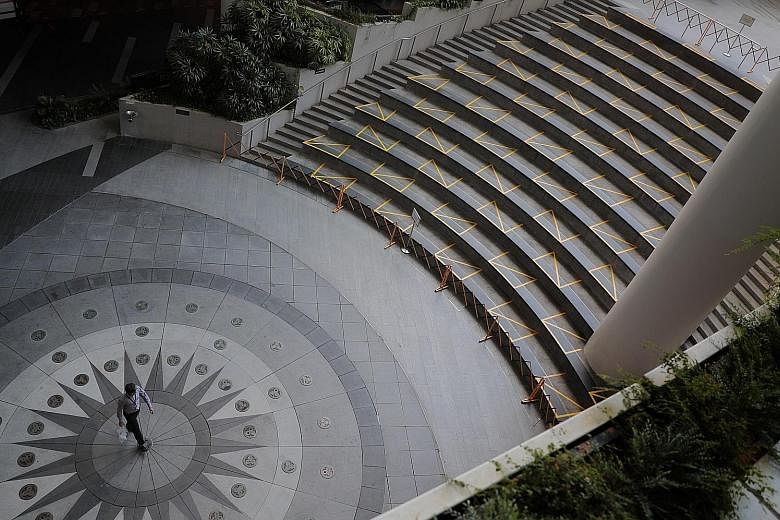The next few days are a critical period that will determine whether the circuit breaker measures can be eased by May 4, infectious diseases experts said yesterday.
Today marks 14 days since the measures, meant to stem the spread of coronavirus infection, came into effect here.
Last Saturday, Prime Minister Lee Hsien Loong said: "There are a few early signs that the circuit breaker is bringing cases down. But we are still worried about hidden cases circulating in our population... the next few days will be critical."
Dr Leong Hoe Nam, an infectious diseases expert from Mount Elizabeth Novena Hospital, told The Straits Times yesterday that this period will be "like a mid-year exam" that will show how Singapore has been doing in fighting the virus.
This is because the virus can incubate in someone for up to 14 days, and the median time taken for a person to show symptoms and be more likely to infect others is five days.
So, someone infected at the start of the circuit breaker measures will have had the chance to pass the infection on to three cycles' worth of people, and the effectiveness of attempts to break these cycles will be revealed in the coming days.
Professor Paul Tambyah from the National University of Singapore's (NUS) Yong Loo Lin School of Medicine said there is a need to lower the number of confirmed cases picked up by primary care clinics' surveillance of influenza-like illnesses, and those from the hospitals' surveillance of pneumonia, to as close to zero as possible.
"If that happens, we can be more confident about gradually lifting the circuit breaker," he said.
Professor Teo Yik Ying, dean of the NUS Saw Swee Hock School of Public Health, noted the three-day average number of cases in the community fell from a high of 48 during the April 8 to April 10 period to 26 over the past three days.
He told ST: "This is an encouraging sign that the circuit breaker measures are working to reduce the spread in the community."
However, he added that he had expected the number of infections to be lower, and that there were still areas to be strengthened.
Dr Leong called the daily number of cases "miserable", as he had hoped it would have dropped to about 10 to 15 by now.
He said: "The majority of the population is compliant - even up to 99 per cent of them. But that is not good enough. To really push this virus down, we need 99.99 per cent of the population to be compliant."
Associate Professor Hsu Li Yang, infectious diseases programme leader at the Saw Swee Hock School of Public Health, felt the recent decline in community cases showed the circuit breaker measures have been effective.
But he noted that it was not a complete lockdown, and people were also continuing to flout the rules. "Under such circumstances, the virus will still be able to spread, but much less easily than before."
A survey carried out by government feedback agency Reach from April 9 to 13 found 8 per cent of Singaporeans did not see a need to wear a face mask, 5 per cent saw no need to keep a safe distance from others, and 4 per cent had made social visits to family and friends or met people for recreational purposes.
There is also the issue of dormitories, which have recently been the source of most cases here.
Infectious diseases expert Annelies Wilder-Smith from Nanyang Technological University's Lee Kong Chian School of Medicine noted that Singapore's foreign worker dormitories are its "weakest link" in the battle against the coronavirus.
"Foreign workers live in confined spaces, so it is close to impossible to reduce contact among one another in dormitories. Covid-19 is very contagious, and the speed of transmission is outpacing the speed of the interventions," she said.
Prof Teo and Prof Hsu said the next few days will show whether the new measures to counter the rapid spread of infection in the dormitories have been effective.
Experts agreed the best way to fight the spread of the virus is for people to practise good social hygiene and safe distancing measures.
Prof Tambyah said: "As individuals, the key is to take good care of our health, practise good hand hygiene and seek medical attention if we are not well."













